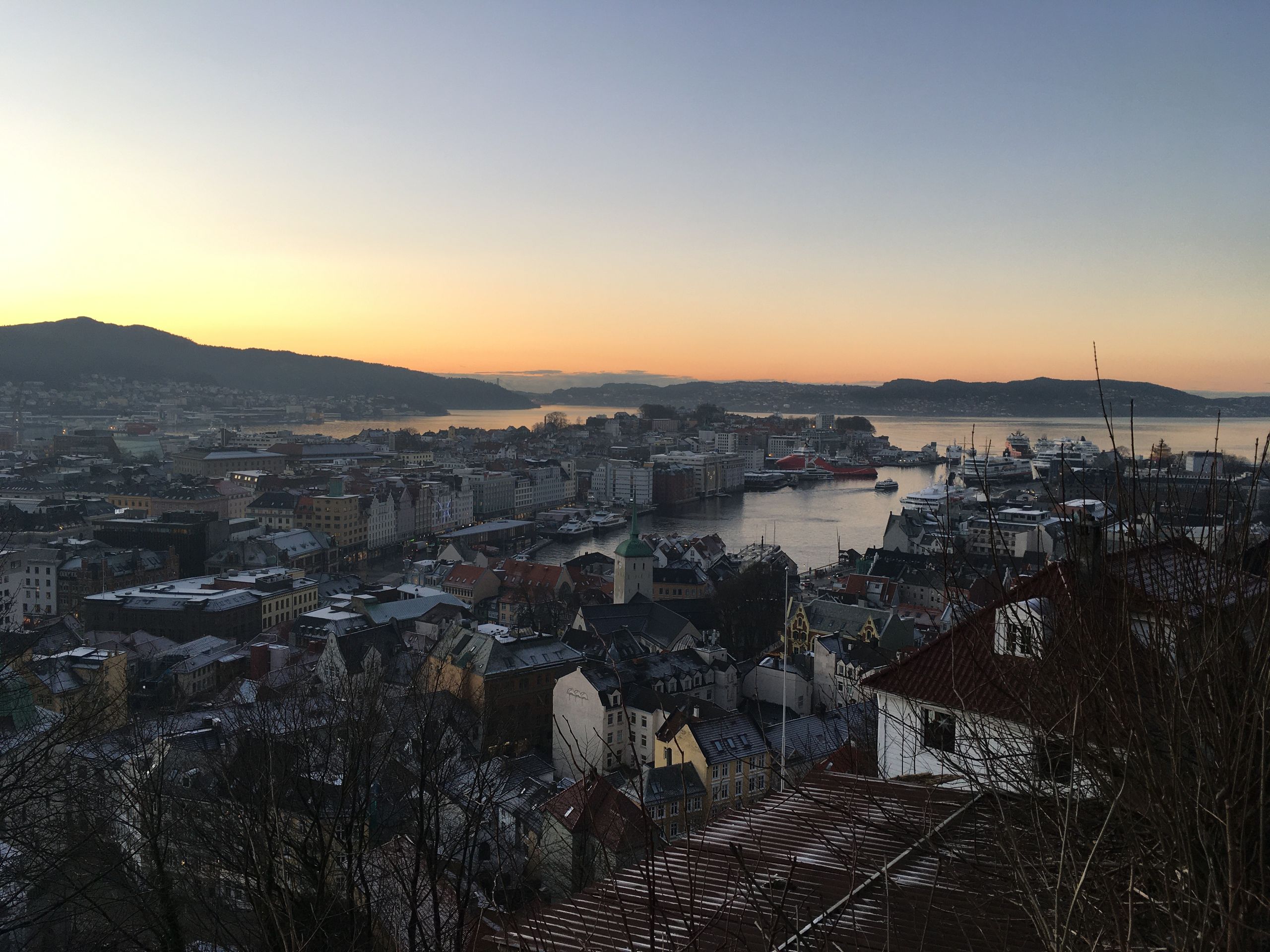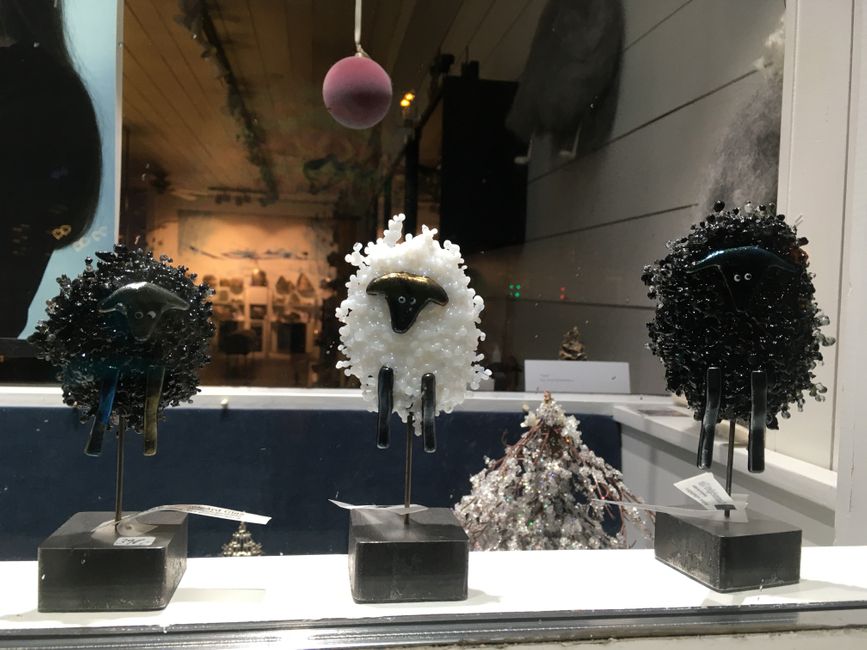Auf, auf zum fröhlichen Wandern
A bɔra kɛnɛ kan: 15.03.2021
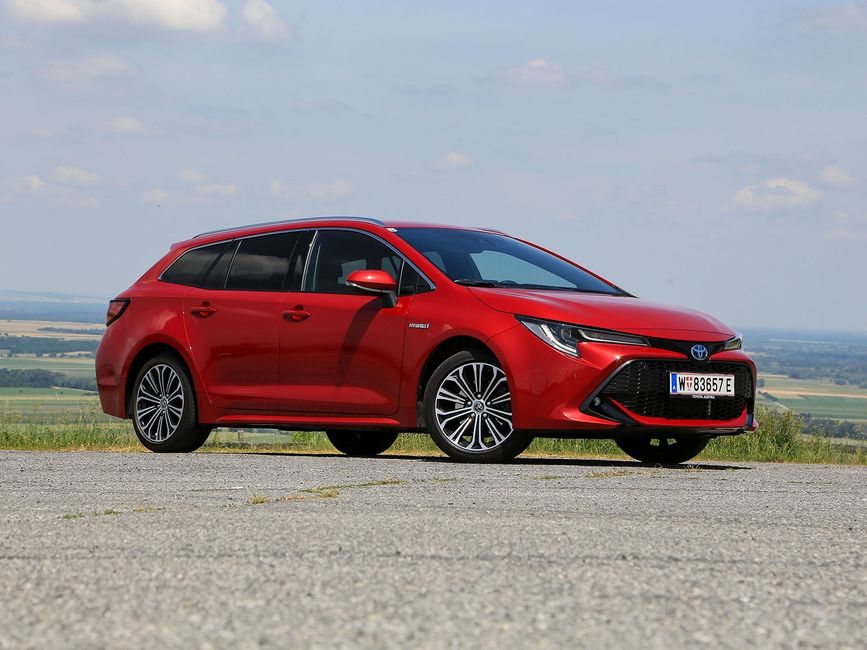
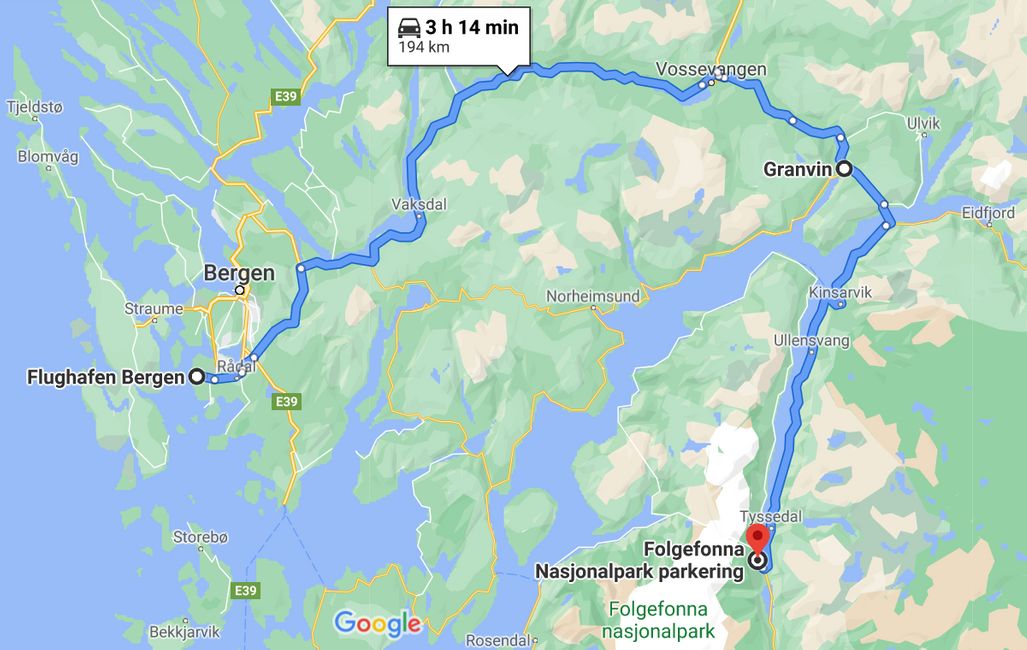
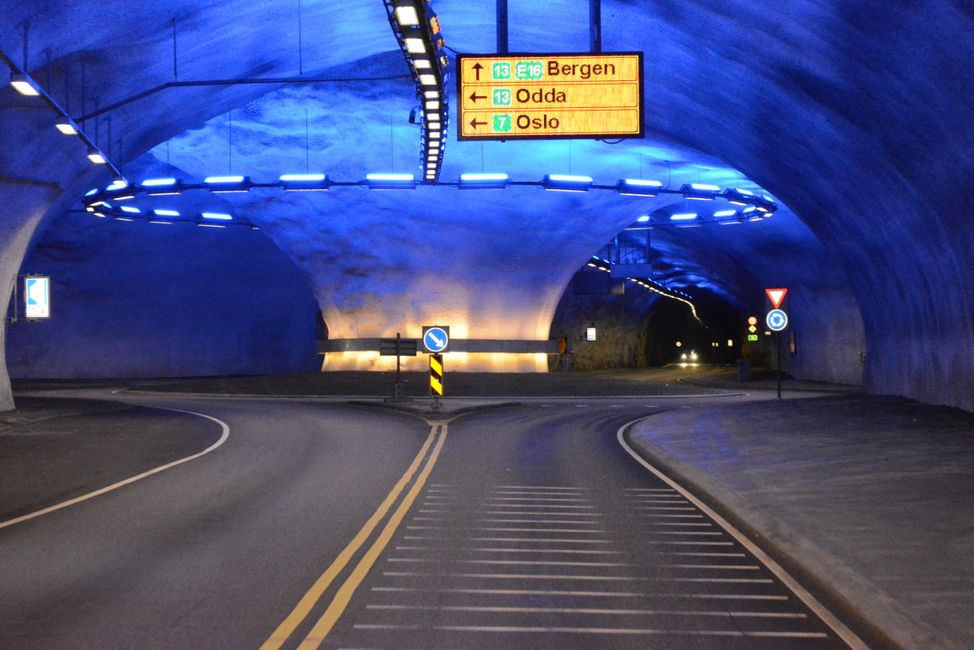
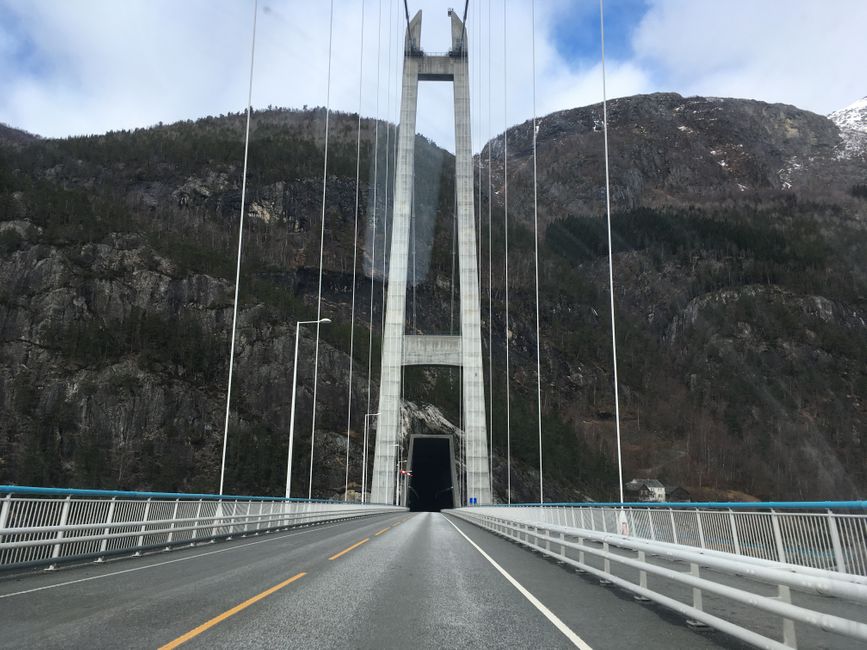
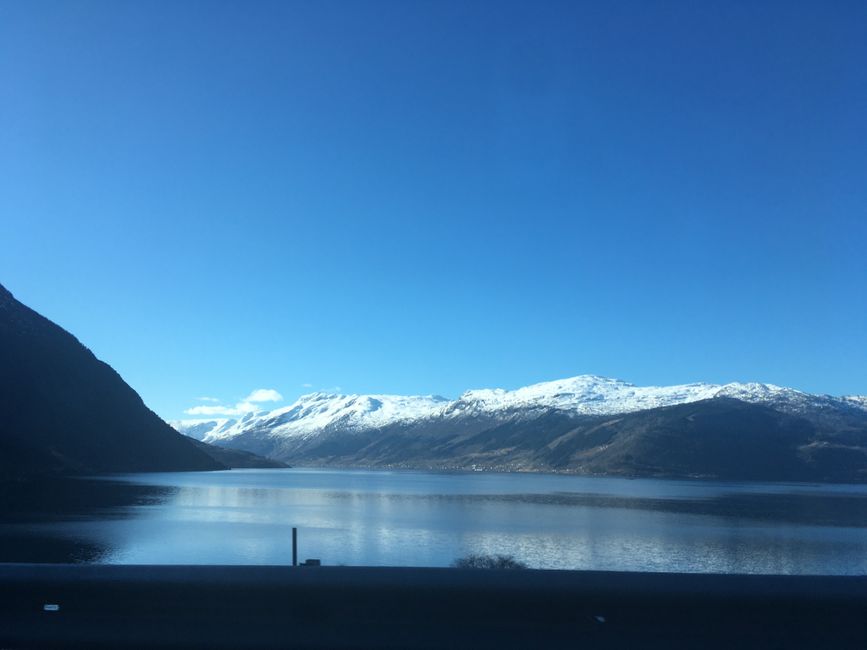
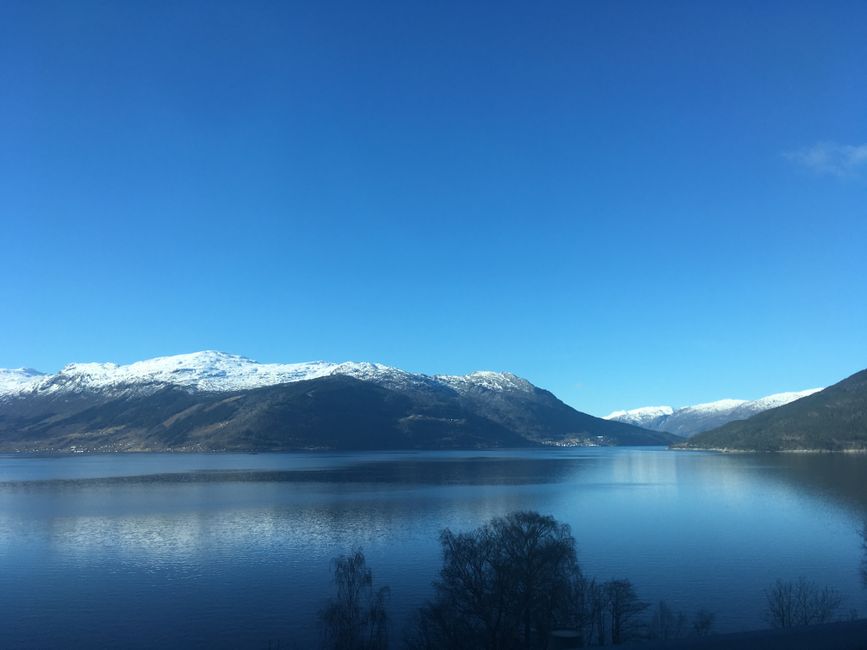
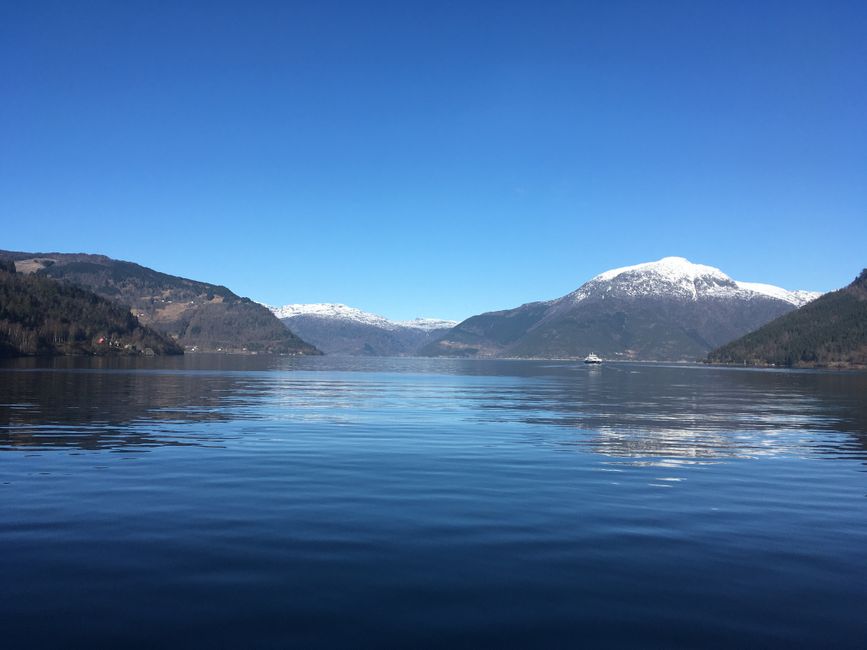
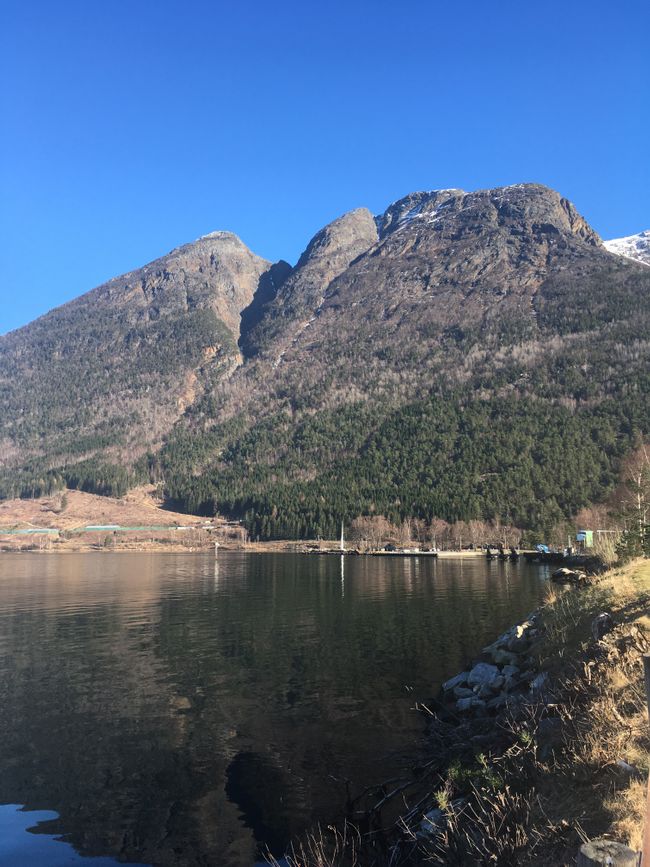
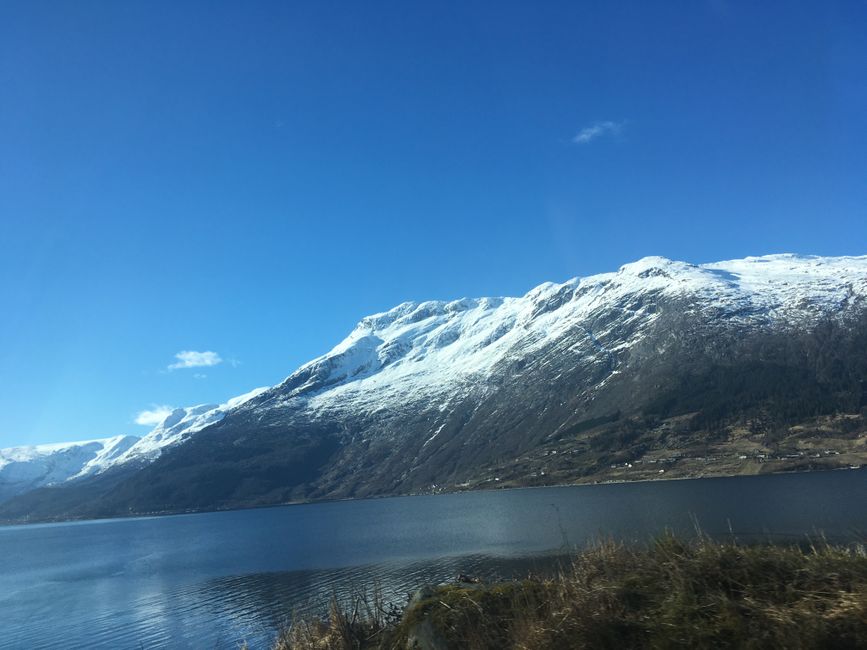
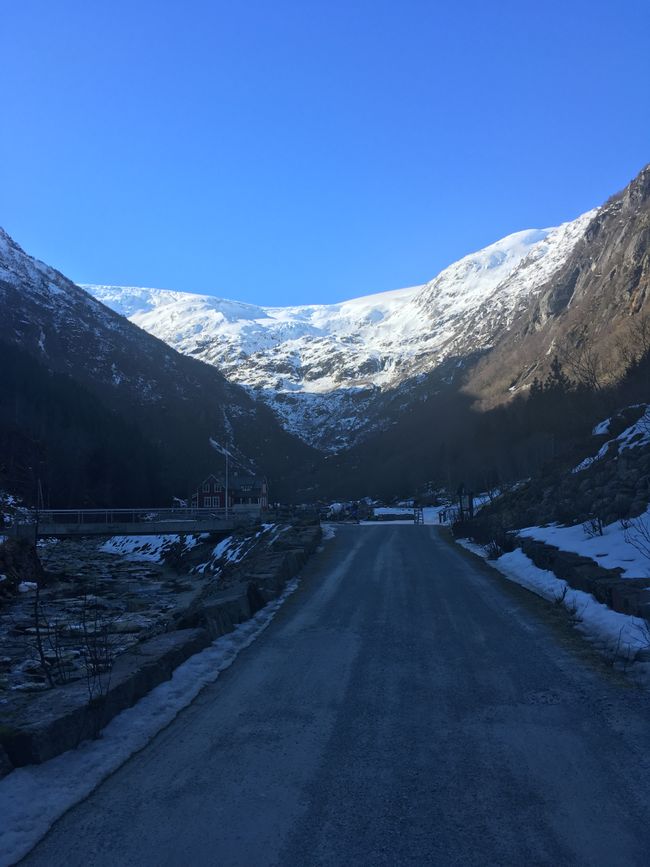
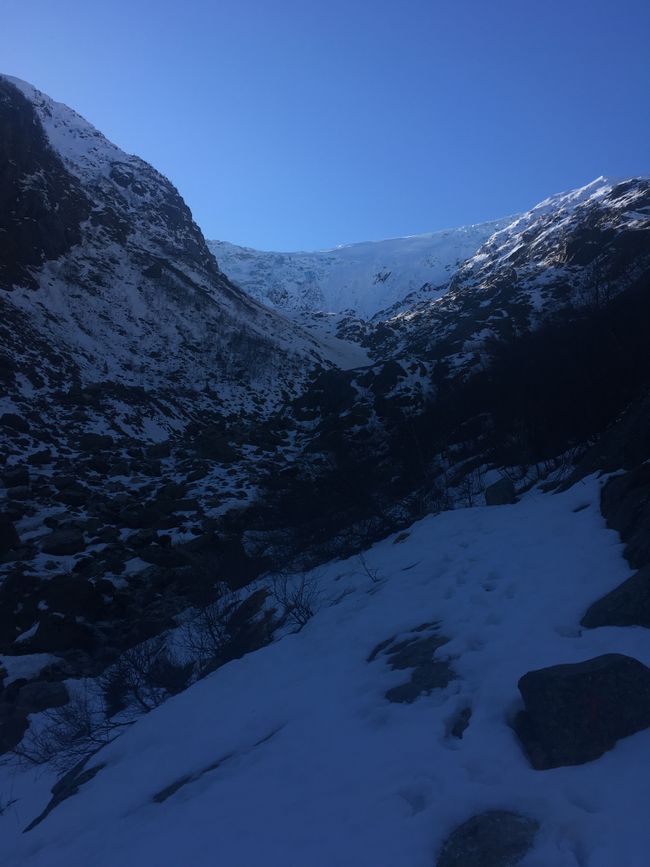
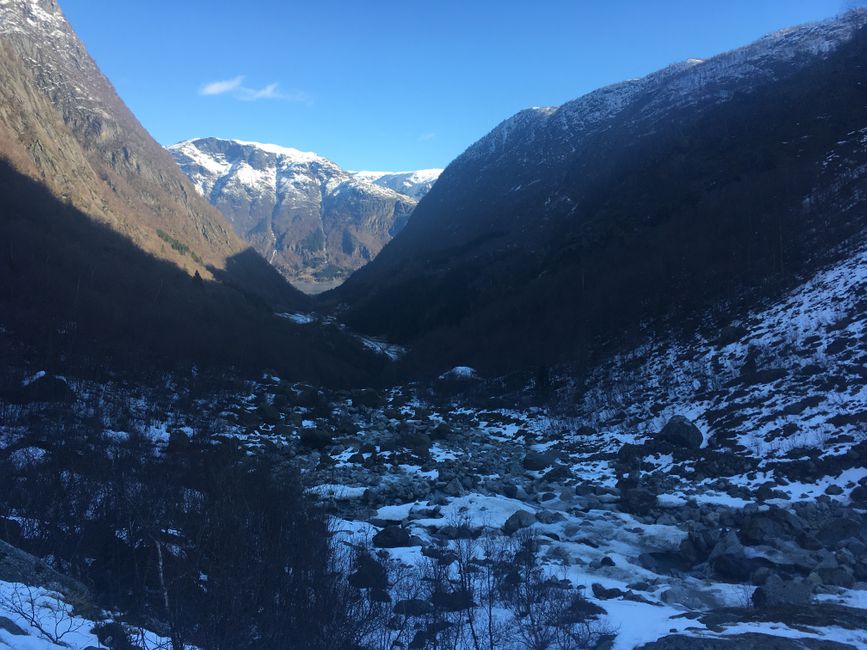
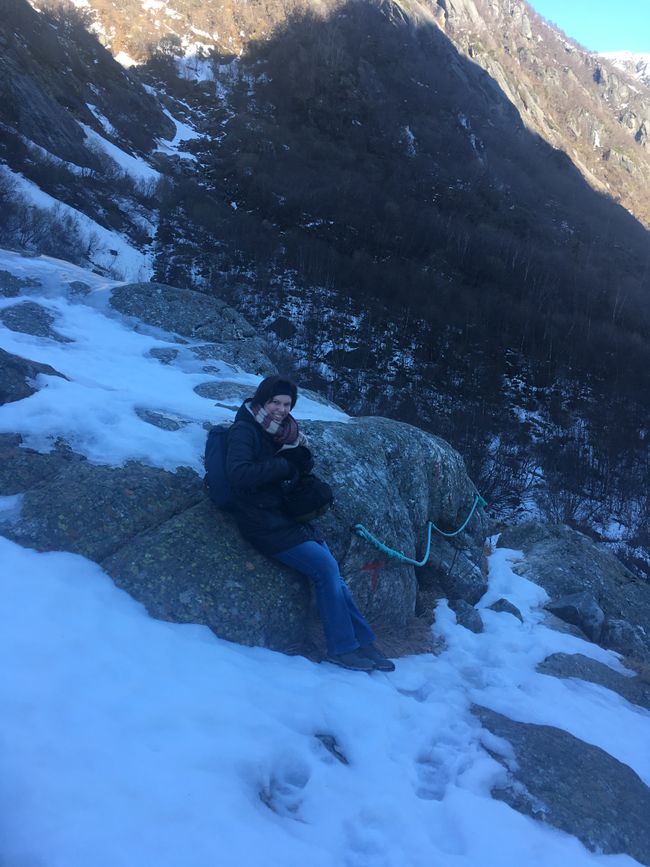
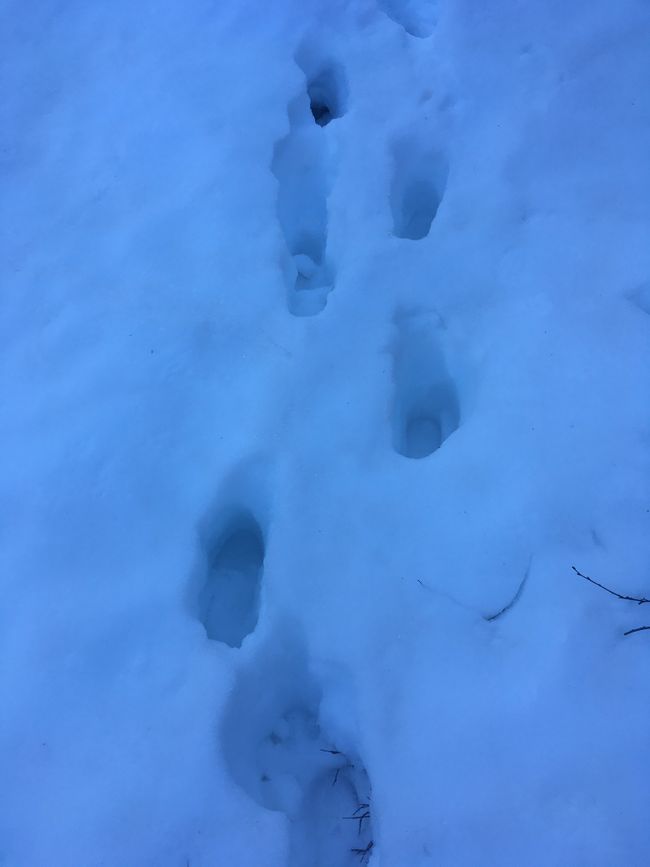
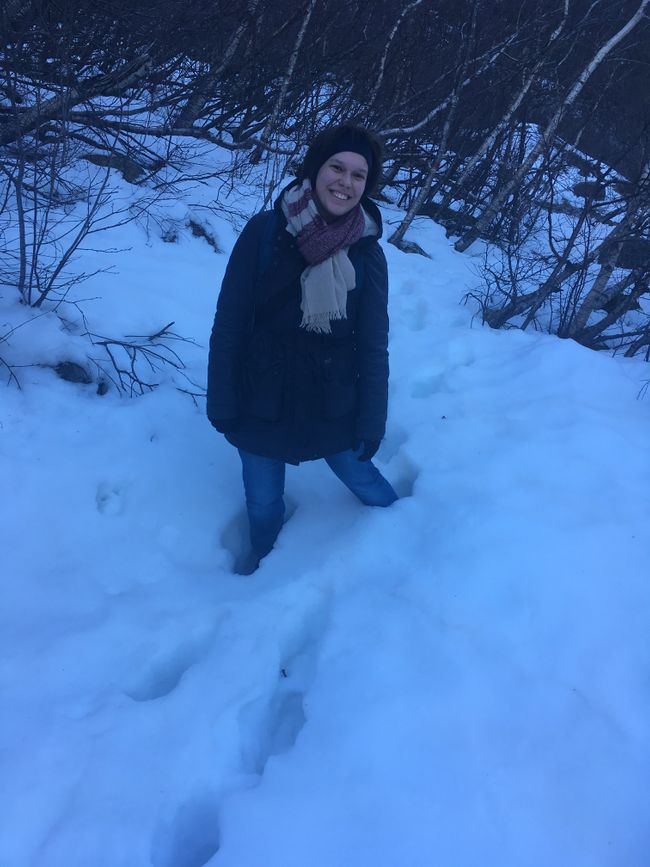
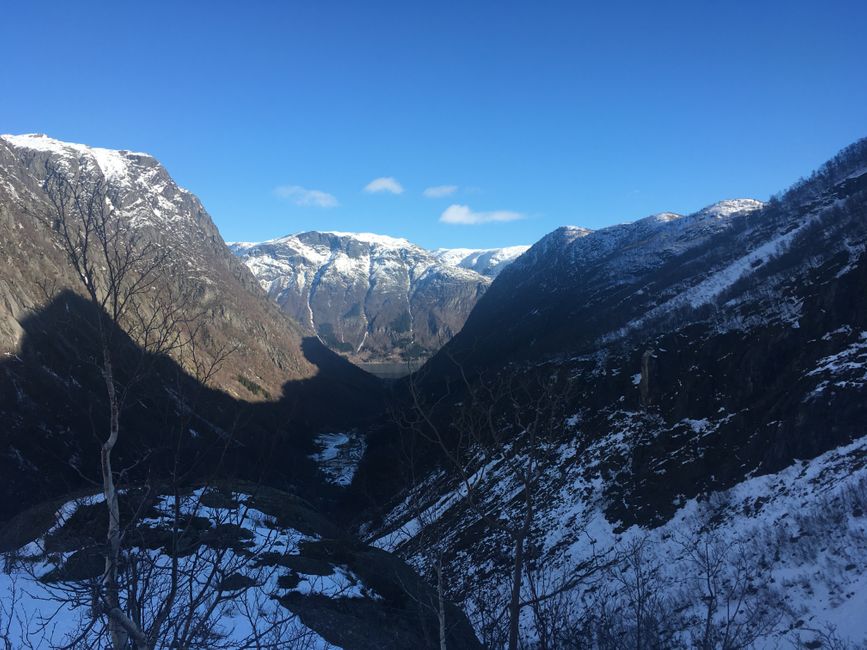
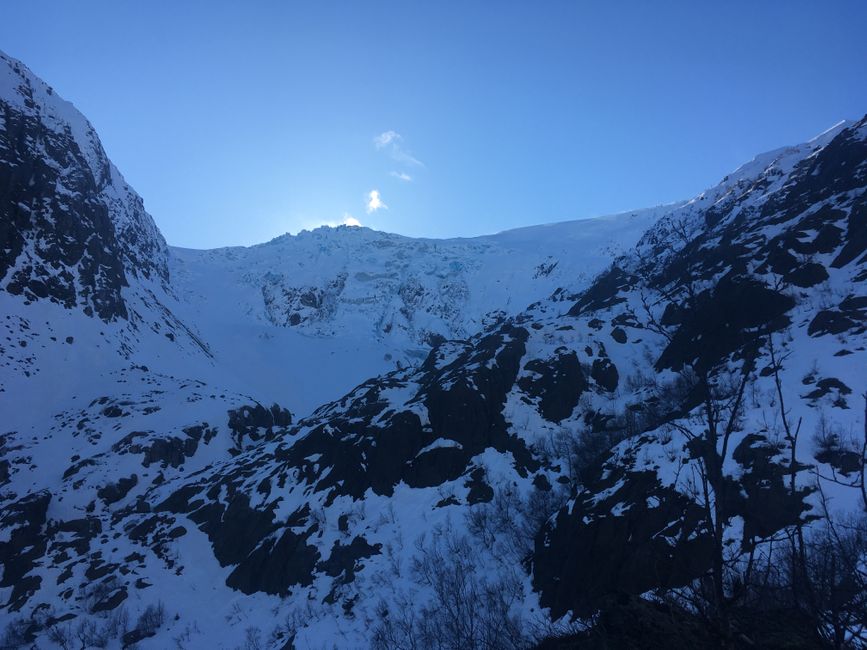
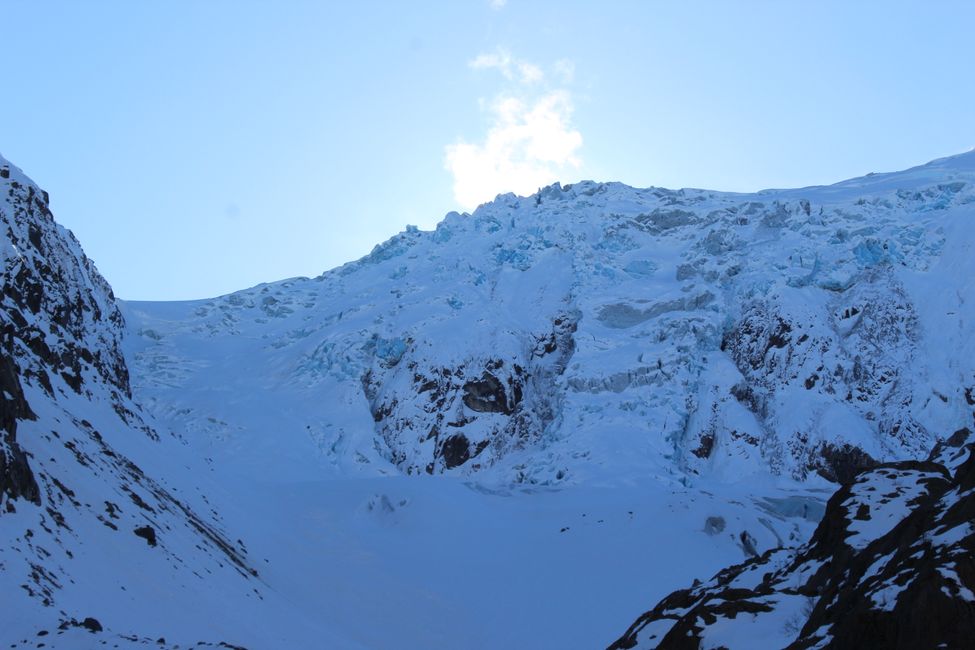
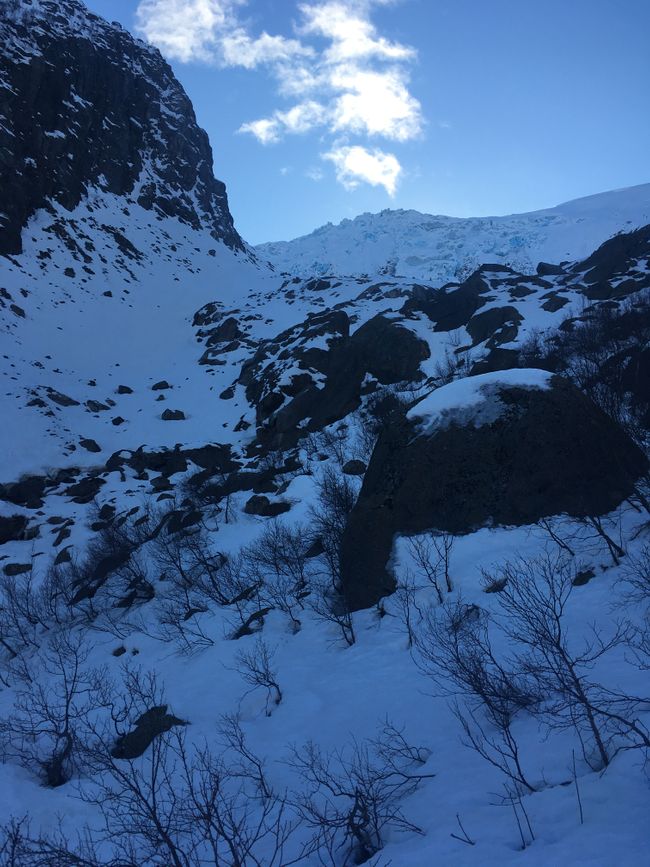
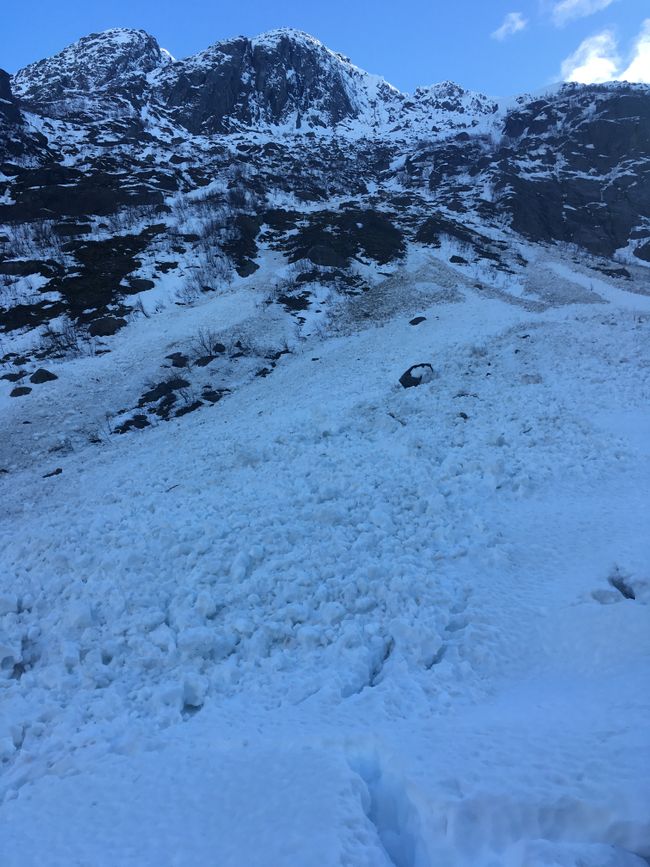
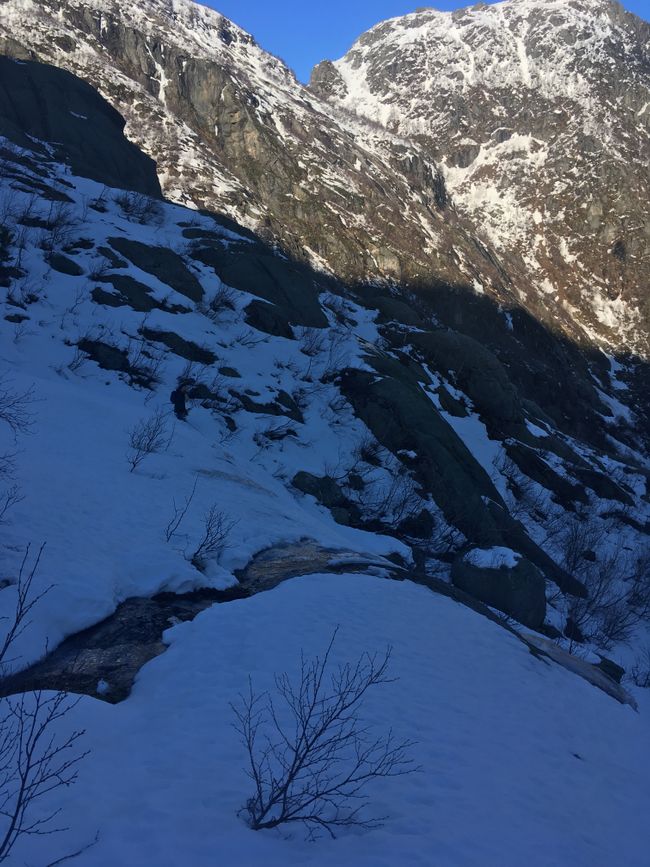
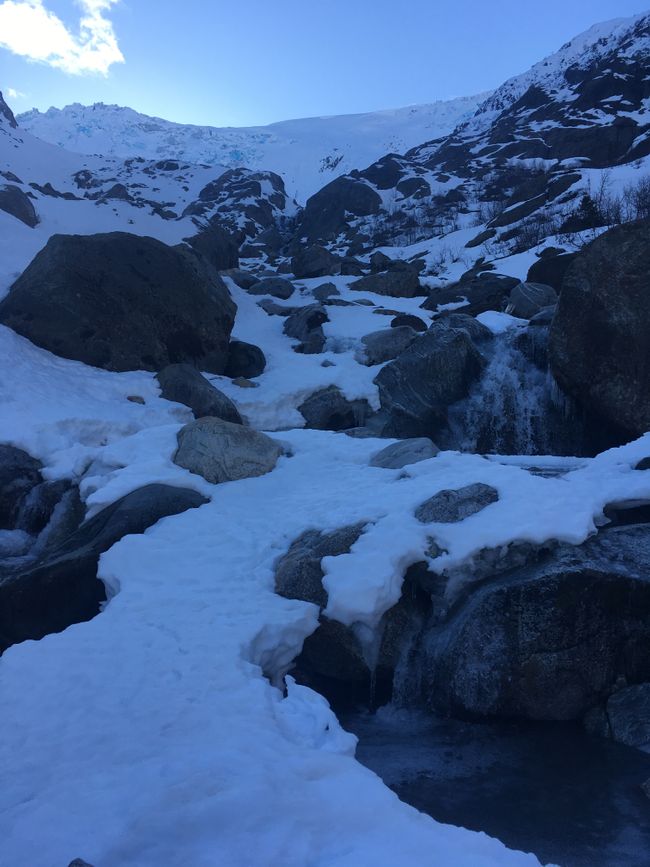
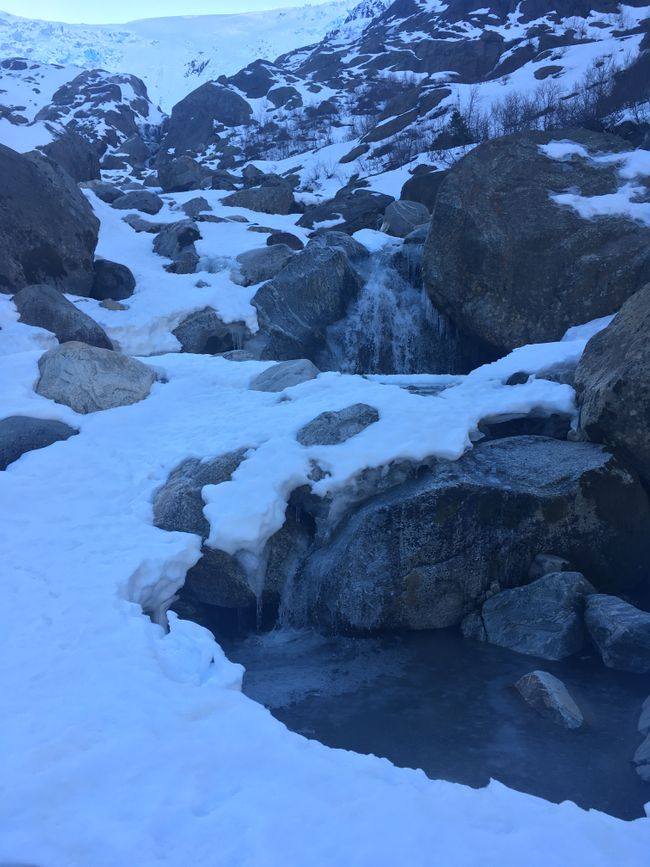
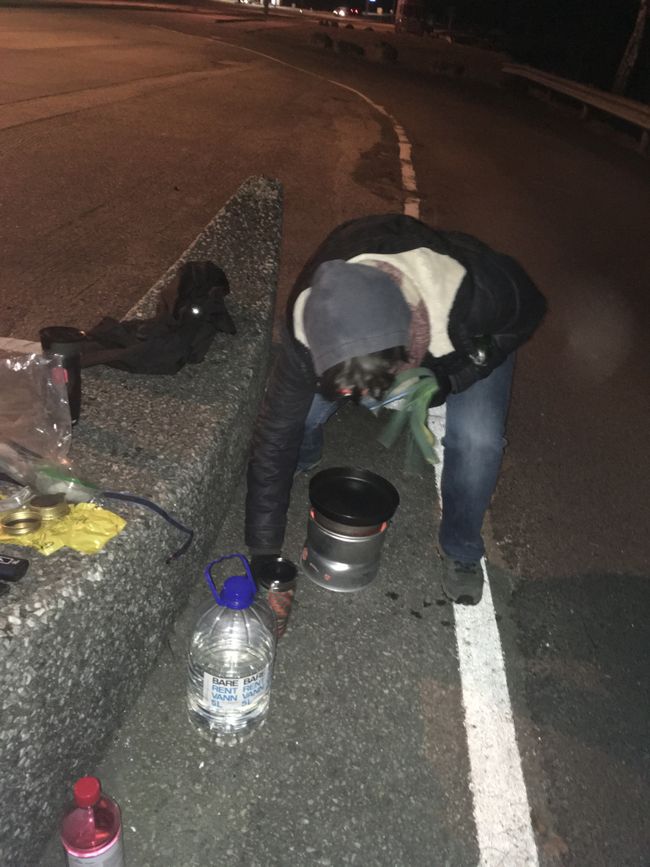
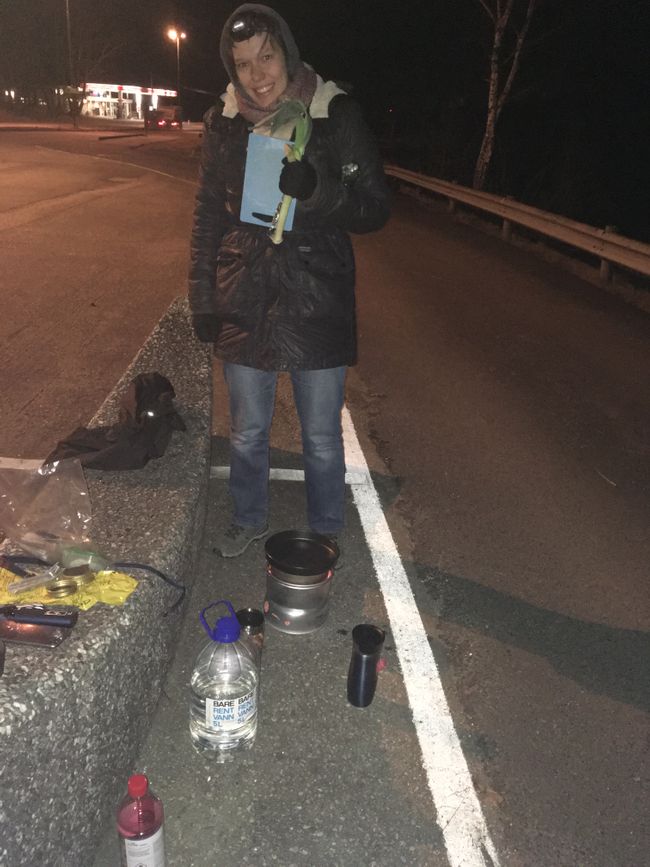
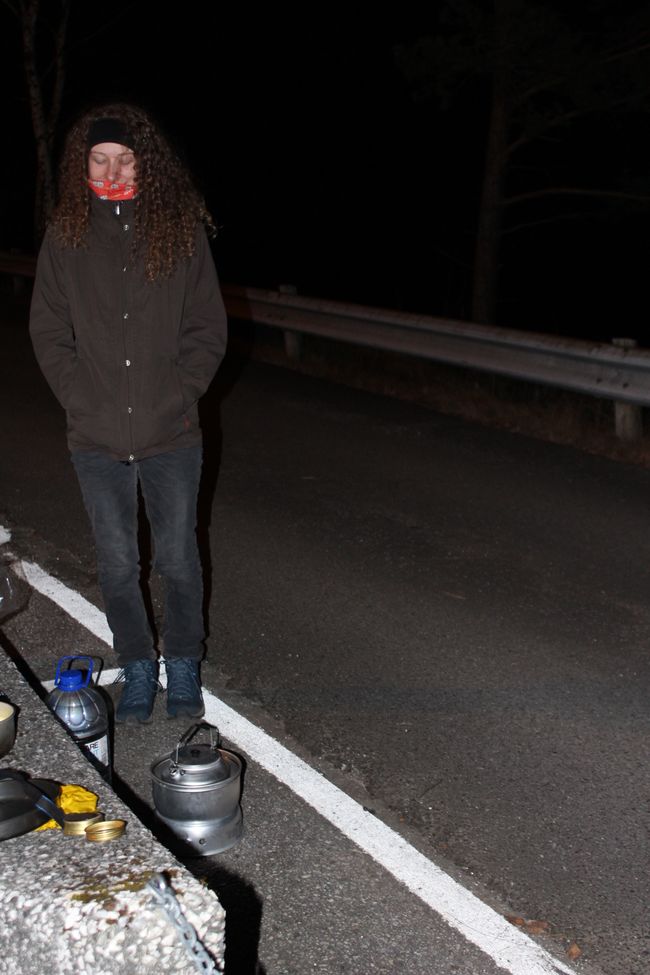
Aw ye aw tɔgɔ sɛbɛn Kibaruyaw la
So now we finally continue. First destination: Buerbreen Glacier west of the town of Odda.
On Thursday morning, we were sitting on the Bybanen towards the airport at half past seven. Our luggage looked more like we were going away for four weeks. In our defense: we each had a thick sleeping bag and a sleeping pad with us. The rest of the volume was taken up by the amount of food we brought with us because we didn't want to go supermarket shopping again. Everything went smoothly at the car rental. Since they didn't have a car in our booked size class at the moment, we got the next larger one, a Toyota Corolla. By the way, the man at the reception only asked us if we had ever driven a hybrid before and just told us not to be surprised if we didn't hear the engine starting. So we went to the parking garage, looked for the car, and stowed our stuff. Pia wanted to drive first. So we were sitting in the car ready to go, but then we realized that hybrid comes with an automatic transmission. Neither of us had ever driven an automatic before, so we had to google first which letter stood for which setting. By the way, we didn't find out what the 'B' stands for, and we didn't need it either. After that, we finally started. Our first destination was Bondhusdalen Valley on the eastern edge of the Folgefonna National Park. Before our trip, we asked some people about how Norwegians drive: they like to use their high beams, always drive faster than allowed, and the trucks tailgate. The speed limits are 50 km/h in urban areas and 80 km/h outside of urban areas. On some highways, the speed limit is 100 km/h. If you drive 5 km/h too fast, it's a fine of 50 euros, and if you drive 20 km/h too fast, it's a fine of 375 euros. But speed cameras are mostly announced with a sign and, if available, also in the car navigation system. In Bergen itself, there was a lot of traffic, which thinned out as we left the city area. In general, you can't expect to have such large roads as in Germany. They are more like country roads, which can also become very narrow. The fact that Norwegians drive faster than allowed is definitely true. We never got flashed, even though we kept to the speed limit. I would say the truck behavior is like in Germany, except that you can't just leave them behind because there is only one lane per direction, which can be a bit annoying. A nice feature was the heated steering wheel. Pia's hands were eventually so warm that I had to look in the manual for where to turn it off. I was still fully motivated at the beginning and wanted to count the tunnels we passed through, but very quickly there were too many and I gave up trying to remember a new number all the time. It was just too fast. In Granvin, we switched drivers. At first, I felt like driving a go-kart and a bit bored because I had nothing to do, but after the two days, it was quite nice not to have to shift gears. Due to the many curves of the narrow roads and constantly braking and accelerating, it can eventually become annoying. We drove through the Vallaviktunnel, which has a roundabout and is lit up in blue. The whole thing looks really cool. The tunnel ended directly on the Hardanger Bridge on our route. By the way, the portal to the bridge is supposed to be the highest tunnel portal in the world at 23 meters. I can't imagine it, there are probably larger ones in America or Asia. But it is definitely spectacular, especially with the great weather we had, with blue skies and sunshine. With the tunnels and the sunshine, constantly putting on and taking off sunglasses went hand in hand. We made a short stop in Kinsarvik to take a great photo. From there, we drove along a branch of the Hardangerfjord to the desired parking lot. The road was partially very narrow, and of course, it was always curvy, but still, the speed limit was 80 km/h. We were pretty glad that it was not tourist season and that we encountered trucks in wider places. The way to the parking lot was on a gravel road, which felt infinitely long, but at the end, there was the expensive parking lot (15 euros). Before we set off for the Buerbreen Glacier, we strengthened ourselves and put on warm clothes. The valley is oriented from east to west, and the surrounding mountains are so high that unfortunately, we had little sunshine due to that. We found the hike in one of our hiking guides, and it was listed as one of the 40 most beautiful hikes. Unfortunately, my hiking app couldn't tell us exactly which way to go at the parking lot because I had no reception, and Pia's phone jumped to 0% battery due to the cold (it wasn't really difficult anyway to go towards the glacier, the question was just on which side of the valley). But we decided on the right path, which was covered with ice at the beginning, and once again, we had the pleasure of avoiding slipping. Later, it led along the northern side through sparsely wooded terrain. Since the sun couldn't melt the snow in the valley yet and we were further inland, it was colder there anyway, and there was still a considerable amount of snow. Unfortunately, we spoiled people from the coast had not thought of that. But the good thing was that the surface of the snow was so frozen that we could walk on the snow without sinking in. And because luck was on our side, there was a crazy person ahead of us who had set off in the deep snow at some point, and we were able to follow in his footsteps. In the valley, there is a stream that is made up of various rivers from the mountains. On our way, we had to cross one of the tributaries without a bridge, which took us a whole 15 minutes. Wet stones are not a problem, you just have to be careful if they are slippery or not. In the cold temperatures, water freezes easily, so all the stones in the middle were covered with ice and impossible to stand on. But we absolutely didn't want to turn back, and eventually, we actually found a way further upstream. Pia almost slipped and fell in. The further the path went, the steeper it became, and the fixed ropes on the rocks made sense. We weren't alone on the hike, though. In total, we encountered 6 people going in the opposite direction. The wind also increased the higher we climbed and became uncomfortably cold. We took a break on a higher rock and found a sheltered spot. The footprints ended there, but the actual trail was not yet finished. However, we decided not to go any further because the upcoming meters showed a considerable ascent, and we had few points of reference for the path. Nevertheless, the view of the valley and the glacier, whose blue ice we could see, were fantastic. The way back was easier than we thought, and we arrived back at the car safe and cold. After that, we decided to drive towards our hike for the next day. So we went back on the narrow road towards Kinsarvik, where we decided to spend the night. We parked directly on the waterfront and started cooking our dinner. We warmed ourselves with a delicious tea and a potato soup. Afterwards, we prepared our sleeping area in the car. We folded down the back seat, removed the trunk cover, and placed our sleeping pads and sleeping bags on the resulting surface. For warmth during the night, we each filled a hot water bottle. The two pairs of new alpaca wool socks that I received for my birthday were an absolute hit for our feet. They always stayed warm. Since the ferry terminal was nearby, there was also a bathroom with a heater that ran the whole time. It was wonderfully warm in there. But you don't want to sleep in the bathroom, so back to the car and snuggle into the sleeping bag. I was able to lie perfectly lengthwise. Pia was 5 cm too tall. Since we had gotten up early and experienced a lot, our eyes quickly closed. Pia's school friend had also been to Buerbreen on her Norway trip in the summer, but they couldn't go as far as we did because it was raining so much back then that the stream carried too much water to cross it. So we're very satisfied with how far we got. The path doesn't actually lead directly to the glacier anyway, and climbing/hiking on the glacier should only be done with experienced people and the right equipment. Anything else is too dangerous.
For the night and the next day, check out the next entry.
Aw ye aw tɔgɔ sɛbɛn Kibaruyaw la
Jaabi
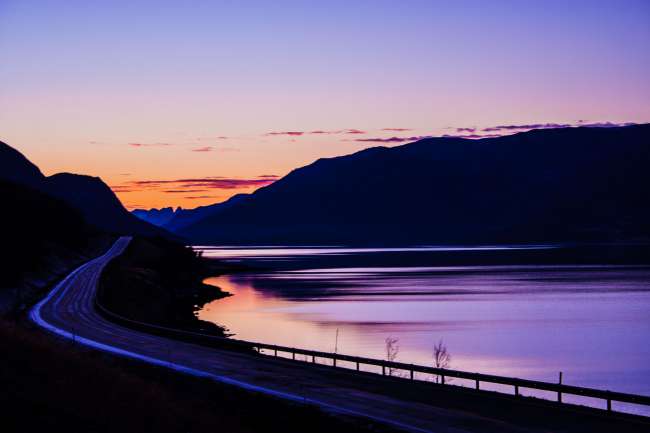
Taama rapɔɔriw Norvege jamana na
